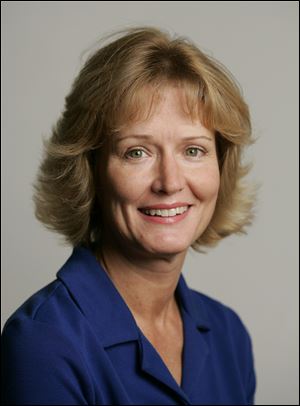
COMMENTARY
Obama should look to Lincoln for a lesson in leadership
11/23/2013
Marilou Johanek
Two enduring events in American history played with the national psyche this week. Yesterday was the 50th anniversary of a date many will forever link to Dallas.
Recollections of that afternoon, weekend, and still painful national wound stirred collective memories about the assassination of President John F. Kennedy. But this week included another anniversary.
On Nov. 19, 1863, the 16th President dedicated a national cemetery. His lasting masterpiece to honor fallen Union soldiers came 4½ months after a pivotal battle of the Civil War.
When the Battle of Gettysburg, waged over three days in July, 1863, was mercifully over, so was Robert E. Lee’s Confederate incursion north. The Confederacy would never recover from the defeat, in which General Lee lost a third of his army. The toll extracted from the Union ranks was equally devastating.
Many casualties found a final resting place in a newly designated national cemetery for the Union dead at Gettysburg. President Abraham Lincoln, visibly aged by the war, was invited, almost as an afterthought, to participate in the dedication.
Organizers of the ceremony asked him to say a few appropriate words after the keynote speaker relinquished the spotlight. On the 150th anniversary of the occasion, the lengthy oration of Edward Everett languishes in the archives.
Mr. Lincoln’s succinct speech is legendary. In two minutes, he said what the famed orator couldn’t in two hours. Mr. Lincoln went straight for the soul of a suffering nation.
War-weary Americans ached for a way out of the hell that had inflicted so much pain. Mr. Lincoln seized a strategic turning point in the war to inspire the Republic with resolve.
In his 272-word Gettysburg Address, he reaffirmed the values and experiences that united Americans rather than divided them. He encouraged Americans to recall the noble ideals that gave birth to their “new nation, conceived in liberty and dedicated to the proposition that all men are created equal.”
Mr. Lincoln bound the country to its higher calling. He exhorted a troubled nation to meet the endurance test of liberty that was “dedicated to the proposition that all men are created equal.”
He challenged Americans living and yet to be born to assume the “unfinished work” of preserving freedom, equality, and justice for all. The buried soldiers who consecrated the ground at Gettysburg “gave the last full measure of devotion” to ensure that “government of the people, by the people, for the people, shall not perish from the Earth.”
The people must embrace what binds them as one nation, indivisible, or the dead will have died in vain, Mr. Lincoln warned.
The president gave meaning to the sacrifice of the Civil War. It was about the United States, born with a fundamental passion for upholding human dignity, surviving the scourge of slavery.
At a critical juncture in the war, Mr. Lincoln offered a firm way forward. He took an emancipating, unifying stand, and saw it through with purpose.
The 44th president is said to be a student of Mr. Lincoln, drawing insights and inspiration from a leader who was determined to make a difference.
President Obama is living proof of his predecessor’s success. But Mr. Obama needs to do more than connect with his 19th-century mentor in the abstract. He needs to take the lessons of President Lincoln’s leadership to heart at a turning point in his second term.
Like Mr. Lincoln, President Obama inherited a country in crisis. He steadied a shaky ship of state in severe economic distress. He moved to make health care affordable and nearly universal in a country without either advantage.
But on too many issues, including his signature achievement on health-care reform, he offers no firm way forward.
A divided, depressed country aches for a way out of its paralysis. But Mr. Obama seems unable or unwilling to lead with unfailing purpose.
The man who twice took the oath of office with his hand on Mr. Lincoln’s Bible chose not to appear at ceremonies in Gettysburg. He should have. He could learn much from the past about elevating the future.
Marilou Johanek is a columnist for The Blade.
Contact Blade columnist Marilou Johanek at: mjohanek@theblade.com